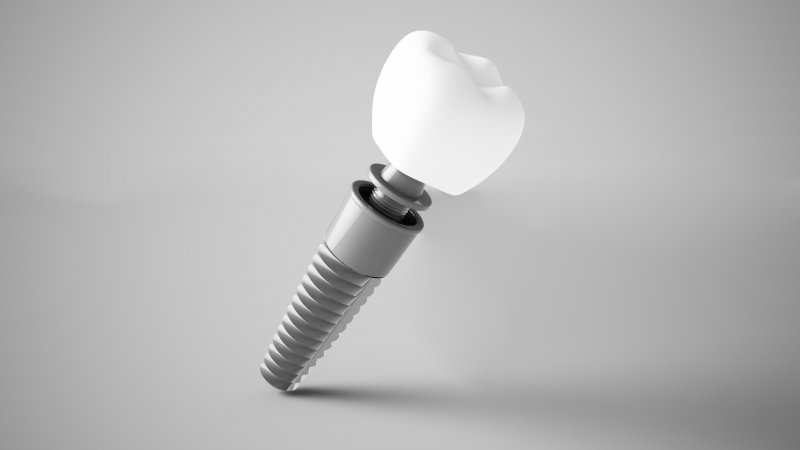
While there are a variety of tooth replacement options available, dental implants are the best way to complete your smile because they look and work exactly like real teeth. Since they are surgically placed directly into the jawbone, they can keep it stimulated to prevent or reverse bone loss while restoring almost all of the patient’s original chewing power. Since dental implants are made from a blend of metals called titanium, some patients might wonder if they can rust after being placed. Here’s why this is extremely unlikely to happen.
How Can Corrosion Affect Dental Implants?
Corrosion is the gradual process of metal being degraded by chemical or electrochemical reactions. Dental implants are made from titanium, a biocompatible alloy, and they are covered with an oxide layer designed to prevent corrosion. However, in some rare cases, an electrical current can be carried through the saliva in the mouth to stimulate chemical reactions that can cause the implant to corrode. While corrosion is incredibly rare in dental implants, it usually takes one of two forms:
Galvanic corrosion
Galvanic corrosion can happen when the titanium in a dental implant maintains an electrical current with a dissimilar metal in the mouth. This other metal is usually found in metal fillings or crowns. Saliva is full of electrolytes and ions, allowing it to easily carry electrical currents through the mouth that can irritate the soft tissues and gradually cause corrosion in a dental implant.
Stress and pit corrosion
Stress and pit corrosion happens when the implant comes into stressful contact with the abutment piece that keeps the artificial tooth in place. This can cause tiny pits to form in the implant that can be exacerbated by the pressure exerted during the chewing process.
How Can I Avoid Corrosion in My Dental Implants?
The risk of a dental implant developing corrosion is incredibly low. Before you can receive dental implants, your dentist will thoroughly examine your mouth to ensure that they can be placed safely, and the risk presented by any metal-based restorative work will be considered in the process. The best way to keep your dental implants healthy is to practice excellent oral hygiene while eating properly, seeing your dentist for regular exams and cleanings, and abstaining from tobacco use.
Dental implants boast an incredibly high success rate of over 95%. Consulting with your dentist can determine if they can be an excellent way to replace your lost teeth.
About the Practice
Juno Beach Smiles provides the best dental health services available in Juno Beach, FL. Led by Drs. Greg Riley and Duane Keuning, the staff ensures that each patient receives personalized care, genuine compassion, and stellar customer service. Areas of expertise include general, restorative, cosmetic, and emergency dentistry as well as dental implant services. To schedule a dental implant consultation, contact the office online or dial (561) 622-7243.
